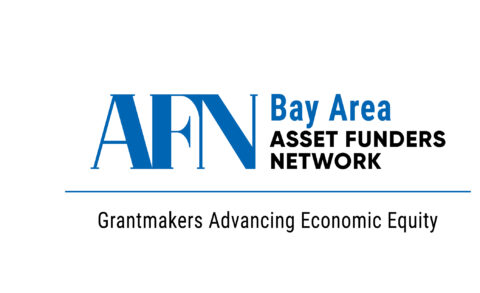
FROM KARAMA NEAL, STRATEGIC PROJECT DIRECTOR
September 2024
Karama Neal serves as the Strategic Project Director at Asset Funders Network (AFN) focusing on heirs’ property. Before AFN, Karama served the US Department of Agriculture, Rural Development, as Administrator of the Rural Business-Cooperative Service. Prior to USDA, she served as president of Southern Bancorp Community Partners (SBCP), a nonprofit community development loan fund and financial development organization.
It has been nearly a year since AFN released the primer Heirs’ Property: Acting to Preserve Wealth. Heirs’ property is real property (land, houses, and other buildings attached to the land) that is passed down to multiple family members via informal inheritance, often across multiple generations.
The U. S. Department of Agriculture has recognized that heirs’ property is “most predominant among African American landholders,” recognizing that heirs’ property impacts the racial wealth gap, generational wealth transfers, as well as community and neighborhood resilience, it has become an area of significant interest and much needed philanthropic investment. In response, AFN is preparing several related resources to explore how grantmakers can make even more strategic investments in policy and practice to benefit families with heirs’ property and their communities.
Heirs’ property is often perceived as an issue specific to rural, Southern Black communities. However, this perception is not always accurate. AFN regional chapters understand that heirs’ property as a critical asset and are currently using the primer to stimulate meaningful dialogue and collaboration. North Texas AFN will host a convening on urban heirs’ property and homeownership on October 9, followed by Philadelphia AFN, which will include heirs’ property on their chapter meeting agenda. Chapters in Arkansas, Louisiana, and the Carolinas are also actively considering how their membership might learn about and address heirs’ property in their regions.
Much of this work is informed by the critical role of financial assets for family property owners. Access to capital from family resources (income or net worth) and financial services (loans, grants, or similar investments from a third party) can play a key role in preventing the formation of heirs’ property, retaining heirs’ property, clearing title on existing heirs’ property, and maximizing property use after title clearance. For example:
- Preventing the formation of heirs’ property – Families with sufficient income or net worth are often better positioned to identify and work with estate planning legal experts to create and probate the wills, trusts, and other legal instruments that prevent the formation of heirs’ property upon their passing. Even the use of some simpler probate avoidance tools (e.g. transfer on death deeds) can require legal assistance that is cost-prohibitive for many families. And given the presence of legal deserts, especially in rural areas, even finding an attorney at all can be challenging for families.
- Retaining heirs’ property – Families that own heirs’ property need access to capital to pay fees associated with probate, pay taxes, do home or other property maintenance, and address other expenses. Since families don’t have clear title, they usually cannot use the property as collateral for a mortgage, home repair, or other loan, so they’ll need to pay out of pocket. Those expenses are often unaffordable so the property becomes dilapidated. In the case of a natural disaster, heirs’ property owners may not be able to access some forms of disaster recovery assistance. Property may be endangered if families do not have the cash for repairs. In some cases, families may face the dual challenge of losing the value of the home they can no longer occupy while paying for a temporary or new residence.
- Clearing title on existing heirs’ property – The legal and other work required to clear title on heirs’ property can take 50-60 hours or many years to complete. Families without sufficient financial assets (cash or access to a loan) may not be able to afford such services. This can mean that their ownership continues over multiple generations and becomes increasingly fractionated, exacerbating the challenges of clearing title.
- Maximizing property use after title clearance – Families who are able to get the title to their property cleared may need access to family or external financial assets to make repairs, improve the property, or develop the property for business use. Without such resources, families may only be able to maintain the value of their property but not increase it for themselves and their descendants.
Banks, credit unions, and other lenders can create policies, programs, and products that facilitate access to capital through loans or other financial instruments for families with heirs’ property. Philanthropy is well positioned to support efforts that provide access to capital for grants for fees, funding legal assistance for pro bono or low-bono wills clinics and other services, guarantees, and loan loss reserves for lenders, among other things.
All AFN members and others are welcome to attend the October 3 webinar releasing the new brief, Heirs’ Property: Policies to Preserve Wealth. Authored by the National Consumer Law Center and sponsored by JPMorganChase, the brief discusses numerous state policies that create an environment that helps families prevent, retain, and resolve heirs’ property. AFN is pleased to support members as they investigate their options. In the coming months, we will share additional briefs and opportunities to facilitate grantmakers’ role in helping families maintain and maximize the value and utility of their property.
Upcoming Events:
October 3, 2024, at 1pm, ET: Register here to learn about AFN’s new brief, Heirs Property: Policies to Preserve Wealth. Designed with funders in mind and building on the 2023 AFN primer, Heirs Property: Acting to Preserve Wealth, this webinar is open to all audiences.
October 9, 2024, 9am-1:30pm, CDT: For funders in the Dallas-Ft. Worth area, register here to join us for a special, in-person briefing to learn about the findings from this new research and discuss opportunities for action to preserve family wealth in North Texas.

